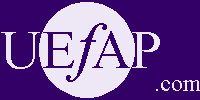Speaking in Academic Contexts
Academic Spoken Genres
Introduction
Students are asked to produce many different kinds of texts when speaking. Depending on your subject, these could be formal presentations, seminar discussions, questions in a lecture, interviews, discussing methods, justifying your research proposal, and so on and are normally referred to as genres. Genres are defined by their purpose, their audience and their structure. Looking at typical structures can help you with your organisation. These different genres can be constructed from a small range of different text types.
If, for example, you are asked to give an oral presentation to answer the following question:
Discuss possible solutions to the problem of international credit control.
You could answer it in the following way:
- Define credit control, say what it is and give an example;
- Explain why international credit control is a problem in business today, and support your explanation by evidence from your reading;
- Describe some possible solutions to the problem of credit control in an international context. Again support your suggestions with evidence from your reading;
- Describe the advantages and disadvantages of each of the possible solutions;
- Decide which solution you would prefer and give reasons.
So in order to answer the question you need to be able to do the following orally:
- Define
- Give an example
- Explain why
- Support your explanation with evidence
- Describe a solution
- Describe advantages and disadvantages
- Choose
- Explain why
Bruce (2008) calls these various texts cognitive genres, but I have called them Rhetorical Functions: see Speaking: Functions Introduction
Here, we will pull together these different functional text types to show how the larger genres (or part genres) you are expected to use when speaking can be constructed from these shorter functional texts.
Fortanet (2005, p. 32) distinguishes the following academic spoken genres:
- classroom genres
- institutional genres
- research genres:
- conference genres
- other research genres

Gillett & Hammond (2009) identified the following:
- Presentations (Individual/Group)
- Small Groups
- Meetings
- Debate
- Moot
- Defence (Art/Computer Programming/Engineering)
- Work (Health)
- Seminars
- Workshop
- Interview
- Poster Discussions
- Teaching Practice
- Tutorial
- Oral Exams
- Viva
It would seem useful, therefore, for students to focus on these common spoken genres:
- Lecture/Presentation
- Formal Meeting
- Colloquium/Seminar/Debate/Moot
- Defence/Viva (Dissertation/Poster/Art/Computing/Engineering)
- Interview
- Oral Exams
- Advising Sessions/Tutorial/ Office hours
- Lab Session/Workshop/Work/Teaching Practice
- Service Encounter
- Study Group

